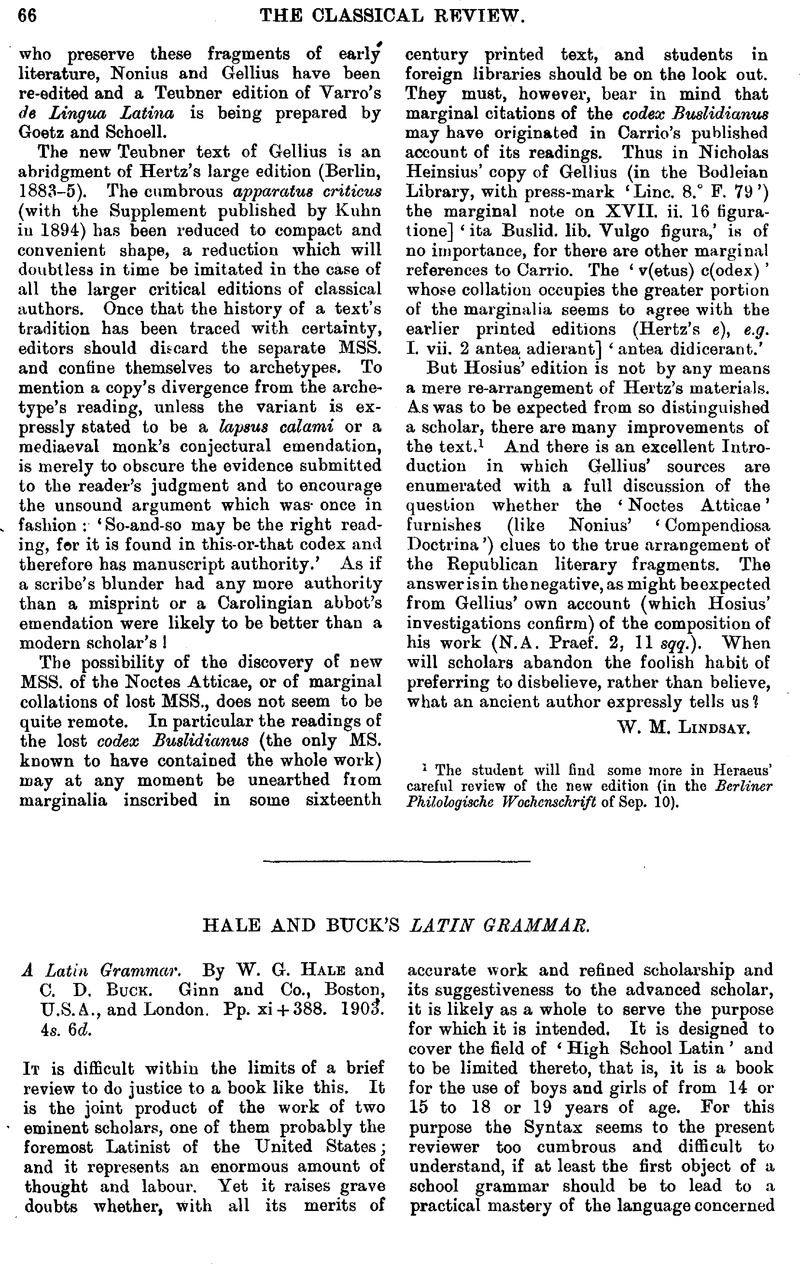No CrossRef data available.
Article contents
Hale and Buck's Latin Grammar - A Latin Grammar. By W. G. Hale and C. D. Buck. Ginn and Co., Boston, U.S.A., and London. Pp. xi + 388. 1903. 4s. 6d.
Published online by Cambridge University Press: 27 October 2009
Abstract

- Type
- Reviews
- Information
- Copyright
- Copyright © The Classical Association 1905
References
page 66 note 1 The distinction between quid Momac faciam? (§ 503) and quid te invitem?(§ 513. 1) is unnaturally magnified by calling the first a ‘volitive subjunctive in questions of deliberation or perplexity’ and the second a ‘subj. of obligation or propriety.’ The difficulty that ‘there is no shade of deliberation’ in the latter might be simply met by abolishing the term ‘deliberative’ altogether, as really too narrow, and recognizing that in both cases the subj. expresses what ought to be (or is to be) done. The negative is, of course, non in both cases.
page 68 note 1 Here I miss an example like eras donabcris haedo ‘you shall be presented’ = I will present you.
page 68 note 2 I doubt, however, whether the ‘shall’ of § 507. 1 ought to be described-as equivalent to a ‘will,’ e.g. in the translation of famam qui terminet astris ‘who shall ( = will) make the stars the boundary of his fame.’


